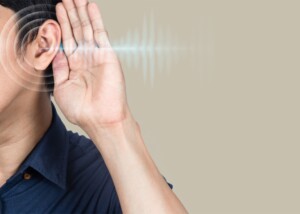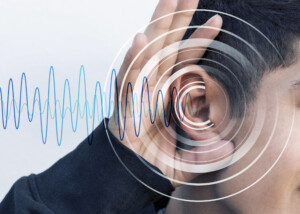
It’s one thing to have a constant “whooshing” sound in one’s ear, but what does it mean when this happens only from exposure to loud noise?
“Loud noise exposure is a trigger for tinnitus,” says Gene Liu, MD, MMM, and Chief, Division of Otolaryngology, Cedars-Sinai Medical Group.
“Most commonly, tinnitus is described as ringing in the ear, but can also sound like roaring, buzzing, hissing, humming and even whooshing,” explains Dr. Liu.
“It is possible that someone’s personal variation of tinnitus is ‘whooshing.’
“Loud noises can cause the stapedial muscle, a tiny muscle that attaches to the ear bones, to flutter.
“This can be sometimes felt as twitching, but may also be heard as a series of rapid clicks, which perhaps could also be described by the patient as a ‘whooshing’ sound. This is not a serious issue, but can certainly be annoying.”
Pulsatile Tinnitus
If you’ve read up on the so-called pulsatile tinnitus, then you know that it’s not typically triggered by loud sounds.
Rather, when a person hears this, it’s present all the time or most of the time, regardless of noise in the environment.
However, it can be concealed if there’s enough ambient noise. But once the noise quiets down, a person will begin hearing the “whooshing” again, usually in synch with their heartbeat.
This is especially easy to hear once a person gets into bed at night and everything’s very quiet.
And pulsatile or whooshing tinnitus can have benign (earwax buildup, Eustachian tube dysfunction) as well as very serious causes (blood vessel entanglement).
However, Dr. Liu explains, “If there is pulsatile whooshing (matches heartbeat) that is brought about by noise exposure, then consider superior canal dehiscence,” a rare condition that affects hearing and balance.
“This issue usually causes dizziness with loud noise exposure, but can add a component of sound hypersensitivity called hyperacusis, that can exacerbate a whooshing noise (or any other type of tinnitus).”
 Dr. Liu’s clinical areas of focus cover a broad range including surgery of the head and neck, sinuses and thyroid, and disorders of the ears, salivary glands and vocal cords.
Dr. Liu’s clinical areas of focus cover a broad range including surgery of the head and neck, sinuses and thyroid, and disorders of the ears, salivary glands and vocal cords.
 Lorra Garrick has been covering medical, fitness and cybersecurity topics for many years, having written thousands of articles for print magazines and websites, including as a ghostwriter. She’s also a former ACE-certified personal trainer.
Lorra Garrick has been covering medical, fitness and cybersecurity topics for many years, having written thousands of articles for print magazines and websites, including as a ghostwriter. She’s also a former ACE-certified personal trainer.
.









































